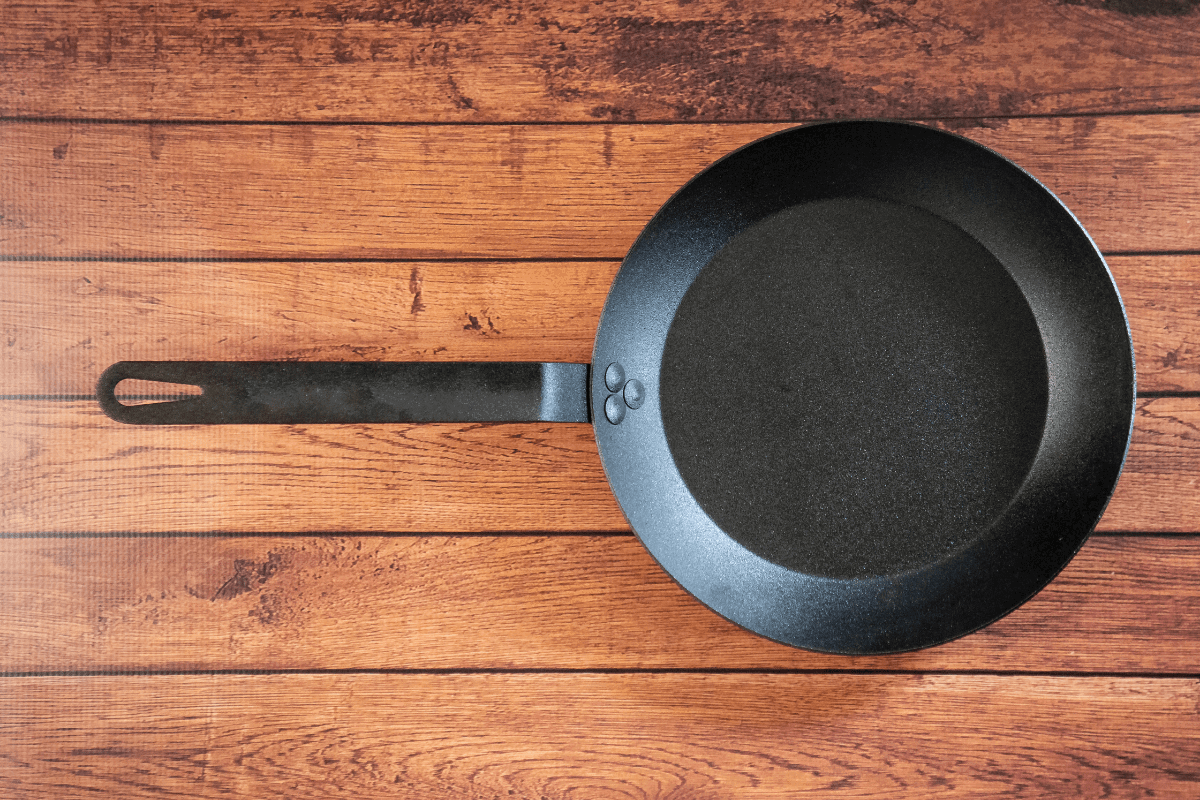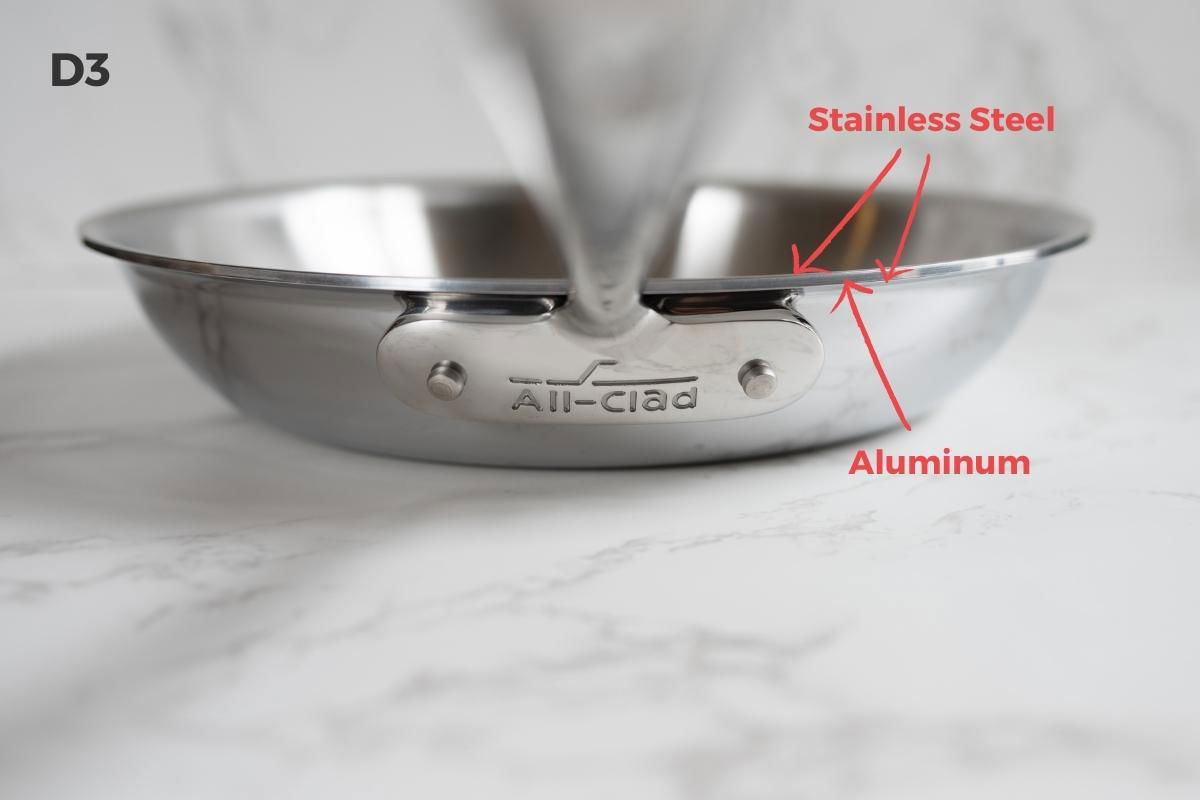Coconut oil makes up 2.5% of global vegetable oil production. About 90% of that supply being produced by the Asian and Pacific Coconut Community.
It is traditionally used for sautéing and frying, though western kitchens have come to love it for the nut-like quality and sweetness for baking, pastries and popcorn. Coconut oil is especially popular among kitchens following a ketogenic or paleo diet.
Virgin coconut oil is fresh-pressed from the meat of a coconut, and like any fresh food, it will deteriorate with age. Yes, coconut oil can go bad.
Experts say that the incredible amount of saturated fat found in coconut oil means that it will last a long time when compared with other unrefined cooking oils. But will it spoil given enough time and exposure to the elements,
In This Article
Does Coconut Oil Go Bad?
Coconut oil will spoil, and you may even notice signs that it is going bad before your jar reaches its expiration date. If it appears yellow, marbled, speckled, or something smells “off” then virgin coconut oil is probably already rancid. Improper storage leads to faster expiration.

Why Does Coconut Oil Go Bad?
Coconut oil is almost entirely made of fat, including more than 80% in saturated fats. Half of this saturated fat is in the form of a medium-chain fatty acid called lauric acid. Surprisingly there are only trace amounts of fiber, cholesterol, vitamins, minerals or plant sterols present.
Although the lion’s share of coconut oil is saturated fat, it’s actually unsaturated fats that will cause it to spoil.
All fats are organic compounds, meaning that they’re composed of chains of bonded carbon atoms. Unsaturated fatty acids, like those found in coconut oil, are distinct from saturated fats because they contain double bonds between some of the carbon atoms.
Double-bonded carbon in unsaturated fats is somewhat unstable, and likely to break down in the presence of oxygen through a process called “oxidation.” As these bonds break, the fat transforms into peroxides which give off characteristically unpleasant “rancid” smells and flavors.
Oxidative rancidity is a gradual degradation that begins when an oil is first pressed, and continues over time. Exposure to light, heat and oxygen accelerate this process.
The oxygen found in water molecules may also be damaging to coconut oil through a similar process. This is called hydrolytic rancidity. If your oil becomes contaminated by bacteria or mold, the enzymes they produce can similarly catalyze microbial rancidity.
Of these three common types of rancidity, oxidative is by far the most common cause that makes coconut oil go bad. Practically speaking, you can’t stop it, but with proper care, you can slow it down.
How To Keep Virgin Coconut Oil From Going Bad
When stored and handled with care, virgin coconut oil has a long shelf-life.
None of our tips are complicated. In fact, most will probably seem like common sense once you understand that exposure to oxygen, water and contaminants creates oxidation. And that light or heat can speed up the process.
Here are a few simple steps you can take to get the most from your jar,
Size your purchase to what you intend to use.
Oxidation is an ongoing process that occurs over time. Time is one variable you can’t change, but you can benefit by planning for it.
For example, don’t buy a mega-container if you only intend to use the oil sparingly. Most virgin coconut oil sold in the United States will be marked with a 24 month expiration window. Regular heat or light exposure may shorten the shelf-life once the jar is open.
Size your purchases so that you can use up the coconut oil in fewer than 12 months. This simple step will save storage space, and help you use all of the oil before it turns.
Seal and store coconut oil in a cool dark place.
Minimize exposure oxygen and moisture in the air by keeping your jar sealed. When possible, store coconut oil in a cool dark place like a closed cabinet away from cooking surfaces. Coconut oil doesn’t require refrigeration, but you can keep it chilled if you prefer.
Light and heat speed up the process of oxidation. Most coconut oil has a melting point of around 75 Fahrenheit. If your oil is typically in liquid form, consider if you can store it in a cooler darker place.
Liquefaction does not indicate the oil is presently damaged, but in many temperate climates, it may signal the jar has received direct exposure to light or heat. These factors can damage the oil over a long period of time.
Use clean utensils to remove oil from the jar.
Because coconut oil is mostly saturated fat, it is actually quite stable. Unfortunately, food contamination from a dirty utensil may not be. Crumbs and food waste may quickly catalyze mold or fermentation.
Avoid using your fingers or hands to scoop oil from the jar. The human body contains trillions of microorganisms – they actually outnumber human cells 10 to 1. It’s easier than you might think to pass contaminants from your fingers into the jar.

How To Tell If Coconut Oil Has Gone Bad
Virgin coconut oil should be incredibly nutty, sweet, and aromatic. If something smells “off,” it probably is. Not only might this lessen the health benefits that are common to coconut oils, but it can also be a food safety issue.
Here are a few common characteristics to tell if coconut oil is bad,
Is the coconut oil yellow?
Coconut oil melts from a solid into liquid form around 75 F.
The solid form of unrefined coconut oil should appear as a creamy white. If your virgin coconut oil seems yellow, brown, or otherwise off-white it may not be safe to use.
In liquid form, unrefined coconut oil should appear clear. If your liquid oil looks dingy or cloudy it may be contaminated. However, near its melting point, coconut oil can exist in a part-solid, part-liquid state which can look very cloudy. For that reason, it’s easiest to distinguish yellow or brown contaminants when the oil is solid.
Does the surface look marbled?
If the surface of your solid coconut oil seems grainy or spotted, it is likely the oil has gone bad. Clumpy discolorations that appear similar to curdled milk may indicate rancidity. The surface texture should have a continuous color and consistency.
Does it appear dirty or speckled?
If you can identify brown or green specks, it’s a good indicator that mold or bacteria is present. In some cases the oil may come across as “dirty” rather than “speckled.” This type of contamination may also be more visible on the surface of a jar of bad coconut oil rather than in the oil itself.
Do not keep dirty or speckled coconut oil in your kitchen.
Does it smell bad?
If the scent makes you gag, it’s a clear sign your coconut oil is bad. Rancid oil is often described as bitter, stale, or pungent. If it doesn’t smell fresh then it probably isn’t.

Is “Rancid” Coconut Oil Bad For You?
Do not use rancid oil for culinary or cosmetic purposes. Not only will it ruin the flavor of your dish, the scent of your hair or skin. Rancid oil is incredibly unhealthy.
As the unsaturated fats in coconut oil break down through oxidation they transform into trans-, cyclized-, and cross-linked fats. These types of damaged fats are incredibly unhealthy and can do harm to human cells. The Mayo Clinic calls trans fat among “the worst type of fat you can eat,” and notes that it is a specific contributor toward heart disease.
According to Dr. Delia McCabe, “Damaged fat molecules, such as the fatty acids found in rancid oil, can be harmful because of their presence across trillions of cell membranes in the human body. These fats disrupt cellular communication, duplication, and regeneration in our tissues and organs. This domino effect is far reaching. It impacts both our physical and mental well-being.”
Rancid oil that has been contaminated by bacteria or fungus can also be dangerous for topical use on hair or skin, causing a body to break out or develop an infection.
How Long Does Coconut Oil Last?
The shelf-life of virgin coconut oil is actually quite long when compared with other popular cooking oils, like extra virgin olive oil. Because it contains relatively few unsaturated fats, and the dominant fatty acid (lauric acid) is saturated, the process of oxidation actually takes a long time.

So, how long does coconut oil last? Shelf-life depends on the type and production method of the coconut oil you are purchasing. I’ll also caveat by re-emphasizing that how you store coconut oil in your kitchen, and at what room temperature, will impact if a specific jar of coconut oil lives up to its “best by date.”
Virgin coconut oil is pressed from the fresh meat of mature coconuts. The International Coconut Community quality standards dictate that virgin oils have not undergone chemical refining, bleaching or deodorizing.
Although some producers of virgin coconut oil provide an expiration date of more than 5 years, most US brands suggest their product is best used within 18-24 months of production.
For example, Dr. Bronner claims their oil is best within 18-months of processing, and labels these products with both “Expiration” and “Best By” dates. The Dr. Bronner team explained that their products without active ingredients will provide an “Expiration Date” as a rule of thumb. They support these decisions with internal testing data, though the method of testing was unclear. Their “Best By Date” refers to their recommendation of the latest time an owner should use the product in order to experience the best sensory qualities.
Throughout my correspondence with 10 other coconut oil producers, associations and distributors like Dr Bronner, it was clear there isn’t a universal industry standard for how long virgin coconut oil should last. In response to an inquiry with the Coconut Coalition of The Americas, I learned that it’s generally up to each individual brand to make a determination on their shelf life of their coconut oil products.
There is no such thing as an “extra virgin” grade for coconut oil, though sometimes brands label products with this designation.
If a coconut oil is not specifically labeled as “virgin,” then it is likely RBD coconut oil.
RBD is an acronym for refined, bleached and deodorized coconut oil. These products are made from dried copra rather than fresh coconut meat. Unlike virgin oil, refined coconut oil does not provide a nutty coconut taste or aroma and tends to be brownish yellow in color.
Most RBD coconut oil should be used within 3 months of opening.
How To Dispose Of Old Oil.
Almost every kitchen has to deal with expired oil at some point in their cooking journey. Planning your purchase quantities will go a long way toward limiting the amount of old or bad oil that you need to dispose of.
Allow used oil to cool before handling it.
Especially if you are trying to dispose of recently used oil, allow it to cool before handling. First and foremost, this is a safety issue. Burns injuries from cooking oil in home kitchens are quite common, and can be severe. Cooled oil is much safer to work with. Given that coconut oil is solid below 75 F, it can also be much easier to handle at a lower room temperature.
Do Not Pour Old Oil Down The Drain.
Cooking fats and oils are some of the most common causes of clogged pipes. They can build up a fatty residue on your pipe walls over time, eventually causing a severe blockage.
Not only can cooking oil clog your drain at home, but also there may be repercussions to your municipal water treatment system. In one recent example, Portland experienced a 600-gallon wastewater overflow into a nearby creek when home cooking grease blocked a sewer line.
Putting Coconut Oil In The Trash.
Sending old oil to the landfill may be the simplest solution, though not the most sustainable. Place your oil in a sealed non-breakable container before adding to the trash can. An old plastic bottle, peanut butter jar or milk carton works well for this purpose.
Do not pour old oil directly into a trash bag or can. This can attract undesired rodents and will make a big mess if the bag is ripped.
Composting Cooking Oil Is Complicated.
Many experts recommend against composting your cooking oil because it can be difficult for an inexperienced composter to get it right.
According to the Worm Monger composting site, oil is more complex to break down than raw fruits and vegetables. It requires extra heat, and can lead to problems like rot and rodents if done improperly.
Ultimately, adding too much oil to a compost pile that isn’t prepared for it can kill the compost.
It Is Possible To Recycle Cooking Oil In Some Areas.
Not all areas have a program that will accept oil, but it’s easy to locate if there is a facility in your area through the Earth911 search tool.
Things to remember.
Expired coconut oil may smell or taste bad, but more importantly it can be damaging to your long-term health.
Because of its high saturated fat content, coconut oil has an exceptional shelf life. But like any fresh food, coconut oil will go bad over time.
Understanding why coconut oil goes bad and knowing what signs to look for can be incredibly helpful. Even so, the single most effective way to keep rancid oil out of your kitchen may be to buy in a quantity you can enjoy well before the expiration date on the jar.








